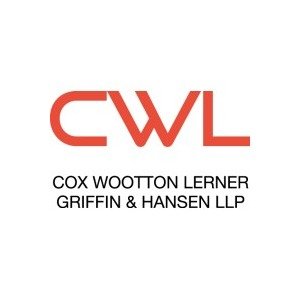Best Public-Private Partnerships (PPP) Lawyers in Honolulu
Share your needs with us, get contacted by law firms.
Free. Takes 2 min.
List of the best lawyers in Honolulu, United States
About Public-Private Partnerships (PPP) Law in Honolulu, United States
Public-Private Partnerships, commonly known as PPPs, are collaborative agreements between government entities and private sector companies to finance, build, and operate projects or provide services that typically fall under public sector responsibility. In Honolulu, as in the rest of the United States, PPPs are increasingly used for the development of infrastructure including transportation, water systems, renewable energy, affordable housing, and public amenities. The legal landscape for PPPs in Honolulu is shaped by both federal guidelines and local laws, ensuring that the partnership achieves public goals while balancing the interests of private partners and the community.
Why You May Need a Lawyer
Entering into a Public-Private Partnership involves navigating complex legal, financial, and regulatory issues. You might need a lawyer if you are:
- A private company bidding for or negotiating a PPP contract with the City and County of Honolulu
- A government agency seeking legal guidance on structuring a PPP that meets local and federal legal requirements
- A property owner or community member concerned about the environmental or social impact of a proposed PPP project
- Experiencing disputes related to construction delays, contract enforcement, or financing of a PPP project
- Requiring advice on compliance with Honolulu’s procurement laws, transparency standards, or public accountability provisions
An experienced attorney can help you understand your rights and obligations, draft and negotiate contracts, ensure regulatory compliance, and represent your interests in any dispute resolution processes.
Local Laws Overview
PPPs in Honolulu are governed by a combination of federal, state, and local laws. At the state level, Hawaii Revised Statutes (HRS) - particularly HRS Chapter 103D (Hawaii Public Procurement Code) and Chapter 36 (related to public financing of capital improvements) - provide the legal framework for procurement and financing of public projects. Honolulu also has its own city and county ordinances governing the solicitation, evaluation, and award of PPP contracts.
Some key aspects of local law relevant to PPP include:
- Procurement Process - PPP projects usually require a competitive bidding process to ensure fairness and transparency
- Contractual Arrangements - Agreements must clearly outline responsibilities, risk allocation, financial terms, and performance standards
- Public Accountability - There are reporting and disclosure requirements to protect taxpayer interests and promote community engagement
- Land Use and Environmental Regulations - PPPs must comply with zoning, planning, environmental review, and permitting regulations specific to Honolulu
- Financing and Funding - Partners must navigate bond requirements, federal funding rules, and local budgeting procedures
Frequently Asked Questions
What is a Public-Private Partnership in Honolulu?
A PPP in Honolulu is a formal arrangement where a government agency collaborates with a private company to finance, build, operate, or maintain public infrastructure or provide services. These can include projects such as public transportation systems, utilities, or social infrastructure like schools and hospitals.
How are PPPs selected in Honolulu?
Projects are typically selected through a competitive bidding process administered by the relevant city or state agency. The process ensures transparency, value for money, and compliance with procurement rules set by Honolulu and the State of Hawaii.
What legal agreements are involved in a PPP?
The main legal instrument is a PPP agreement or contract. This document details responsibilities, performance requirements, financial arrangements, risk sharing, and dispute resolution mechanisms between the public and private parties.
Who monitors PPP project performance?
The relevant city or state agency is responsible for overseeing performance, often with periodic reporting requirements and independent audits to ensure that the private partner meets contractual obligations.
Can a private company propose a PPP project?
Yes, private companies can submit unsolicited proposals for PPPs. However, these are subject to strict review and must meet established criteria before consideration by public authorities in Honolulu.
What are the main risks in PPPs?
Major risks include construction delays, cost overruns, performance shortfalls, legislative changes, and community opposition. Proper legal structuring and risk allocation in the PPP agreement help manage these issues.
Are there specific environmental regulations for PPPs in Honolulu?
Yes, PPPs must comply with federal and state environmental laws, as well as local Honolulu ordinances regarding land use, environmental impact assessments, and permitting processes.
How are disputes resolved in PPPs?
Disputes are typically addressed through dispute resolution clauses in the contract, which might include negotiation, mediation, arbitration, or litigation in local courts.
Can the public participate in the PPP process?
Public consultation is often required at key stages of PPP project development. This may include public hearings, comment periods, and opportunities for community engagement.
How long do PPP projects usually last?
The duration of a PPP contract varies depending on the project scope but commonly ranges from 10 to 30 years. Longer terms are standard for infrastructure projects requiring significant investment and maintenance.
Additional Resources
If you need more information about Public-Private Partnerships in Honolulu, consider reaching out to these resources:
- City and County of Honolulu Department of Budget and Fiscal Services - Procurement Division
- State of Hawaii Public-Private Partnership (PPP) Office
- Hawaii State Procurement Office
- American Bar Association - Section of Public Contract Law
- National Council for Public-Private Partnerships
- Local law libraries, including the Hawaii State Law Library
Next Steps
If you are considering involvement in a Public-Private Partnership in Honolulu or are already participating in one and require legal guidance, take these steps:
- Gather all relevant documents, including bid materials, contracts, project proposals, and correspondence with public agencies
- Prepare a list of your goals, concerns, and any specific legal questions you may have
- Contact a local attorney or law firm with experience in PPP, public contracting, and related matters. Look for professionals familiar with Honolulu’s regulations and the relevant state statutes
- Schedule a comprehensive consultation to receive tailored legal advice based on your unique situation
- Consult additional resources for further reading and clarification, and stay informed about changes in legislation or public policy that may affect your project
Taking the time to seek qualified legal advice can help protect your interests and ensure the success of your Public-Private Partnership in Honolulu.
Lawzana helps you find the best lawyers and law firms in Honolulu through a curated and pre-screened list of qualified legal professionals. Our platform offers rankings and detailed profiles of attorneys and law firms, allowing you to compare based on practice areas, including Public-Private Partnerships (PPP), experience, and client feedback.
Each profile includes a description of the firm's areas of practice, client reviews, team members and partners, year of establishment, spoken languages, office locations, contact information, social media presence, and any published articles or resources. Most firms on our platform speak English and are experienced in both local and international legal matters.
Get a quote from top-rated law firms in Honolulu, United States — quickly, securely, and without unnecessary hassle.
Disclaimer:
The information provided on this page is for general informational purposes only and does not constitute legal advice. While we strive to ensure the accuracy and relevance of the content, legal information may change over time, and interpretations of the law can vary. You should always consult with a qualified legal professional for advice specific to your situation.
We disclaim all liability for actions taken or not taken based on the content of this page. If you believe any information is incorrect or outdated, please contact us, and we will review and update it where appropriate.













